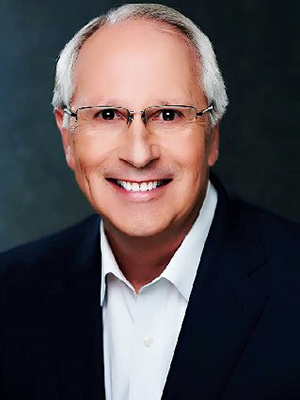In nearly thirty years of working as a financial advisor, I have never witnessed more uncertainty in so many areas that impact investments. The financial crisis in 2008 was serious and we saw tremendous volatility, but it was more concentrated directly with mortgage and banking related concerns.
The objective of having some assets in a position that are unaffected by market volatility is a discussion that I always have. I can also state that most people do not give this suggestion much concern because we focus on recent events. We are very aware that market returns in general were outstanding for 2019.
We are emotional beings and our brains are programmed to protect us. This can be both good and bad. It is good when our brains provide decisions that protect us from harm and danger. It can be bad when our thoughts create fear and reaction to what is perceived harm vs. real harm and we make decisions that are based on false information.
Have you had a bad dream and, although you knew it was a dream, found it difficult to relax afterwards? It is my understanding that the subconscious does not separate what is real from what is imagined. The brain is an amazing organ, and it is a challenge to direct the brain down the right path at times. That inner voice likes to talk, and often that voice is spewing fake news.
How many times have we heard, “Buy low and sell high?” All of our lives! Have you taken the time to look at the performance of specific investments vs. the average return of the average investor in that investment? Emotional investing can be a dangerous road to travel.
At the time of this writing, there are many investors selling low; when the market rebounds and they feel confident that the economy has stabilized, they will reinvest (buy high). How long will it take to recover the current downturn? No one can accurately predict that time, but if history is repeated, it will recover and grow again.
We are absolutely facing an impact on businesses that has not been previously witnessed, and it is true that certain sectors of the economy may not recover. While we cannot change the past mistakes and correct what we should have done, we can certainly learn and change our planning going forward.
Let’s review a few principles that have stood the test of time. Diversification of multiple asset classes spreads risks from being concentrated in one sector. Having assets allocated for multiple time frames allows you to manage distributions more efficiently. While cash accounts and low risk funds don’t earn high returns, they allow you to avoid taking distributions from investment accounts that are impacted by negative returns in the stock market.
One of the biggest mistakes made by investors is having a short-term strategy for their long-term planning. Unfortunately most persons learn wisdom from the mistakes they have made. Life is made complex when we focus on daily emotions that are disconnected from our vision of the bigger picture for our lives.
Security is at the heart of reducing stress, and what creates security is often not exciting. Having peace within and lowering stress is something that each of us desires. On the other hand, our brains also like to feel good, and it feels good to invest and see that we made 10 – 30% last year on our portfolio. On the other hand, eating dessert for three meals each day might feel good, but the results are not in our long-term best interest. I hope that each of us will have the ability to let this recent disaster remind us to avoid this in the future and make appropriate choices.
We all desire to be protect what matters most and live our lives with enjoyment. Unfortunately, financial stress can rob us of enjoyment just as poor health can. This is a time to embrace what is important and to focus on what we can control. We cannot control our circumstances, but we can control how we respond. May we use the wisdom of good counsel and the support of others as we face the challenges ahead.
How long will it take to recover the current downturn? No one can accurately predict that time, but if history is repeated, it will recover and grow again.
























